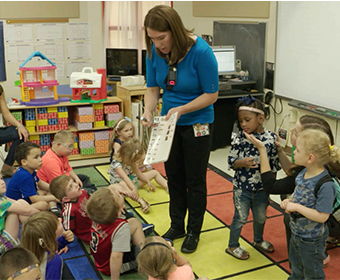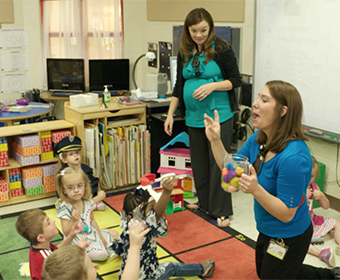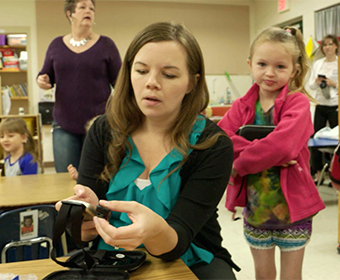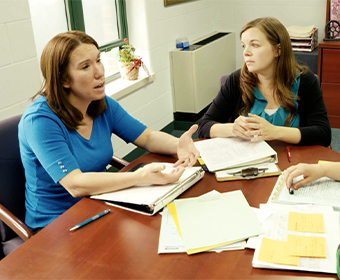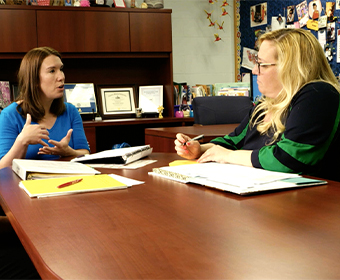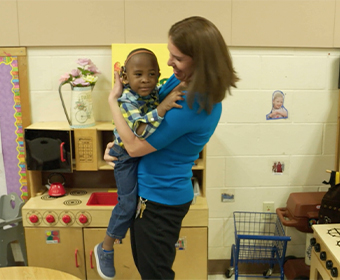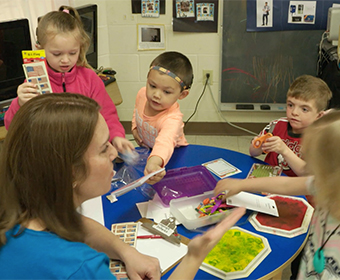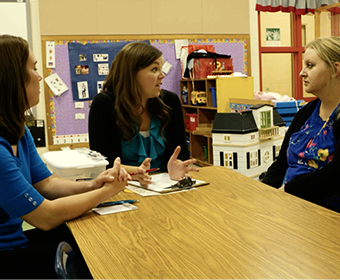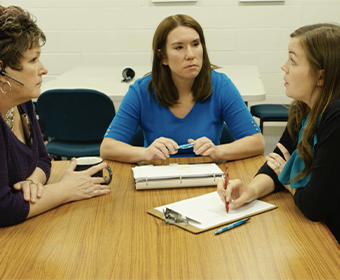School:
Valeska Hinton, ECEC
Position:
Teacher of the Deaf
Number of Years Teaching:
15
Different Grades that you have taught:
PreK is the only grade I have taught.
How did you know that you wanted to teach early learners:
I have a passion for working with students with special needs. As a high school student, I volunteered in a self-contained deaf education classroom at the local elementary school in my district during my study hall and lunch. This opportunity to learn sign language and work with children instilled a passion for deaf education. My first job opportunity 15 years ago was teaching preschool and I have been there ever since! My passion is in early intervention and early childhood because of the impact it has on the future of every child.
What are a few “non-negotiables” of your early learning classroom (kinda your educational philosophy)?:
Every child has the right to learn and communicate. Children with hearing loss and additional disabilities have additional challenges with communication but there is always a way to teach a child to move from their current level to the next. Parents send their children every day with the expectation that I will love them and help them learn and grow. My job is to lovingly encourage each child to reach their full potential through fun, play, and engaging teaching.
What is something that you want us to know about you as a teacher of young children?:
After 15 years of experience and a doctorate degree, I consider myself to be a life-long learner. I love learning and helping other professionals learn and grow. In the school building, I consider myself a leader and try to help with professional development activities when possible by presenting in areas of expertise. I also meet with other teachers in the building to help support teachers with technology and assessment. I work with the Universal Leadership Team (ULT) and principal to write the school wide improvement plan. As a member of the ULT, I try to advocate on behalf of teachers, parents, and students to plan and organize activities to meet the needs of our school.
Anything else you would like your viewers to know?:
Deaf education self-contained classrooms are very different than any other early childhood classroom. The impact hearing loss has requires specific strategies to help teach language development. Although we also teach academic skills to prepare students for kindergarten, we are constantly embedding the student’s language targets into all areas of development. We are also helping develop the social emotional side of students with hearing loss and their identity as person. Some students have hearing aids, cochlear implants, BAHA’s, and are learning to use those assistive listening devices for communication while other students use ASL or sign to support communication. No Deaf/Hard of Hearing child is the same and all require individualized instruction to meet the needs of the child and family.


